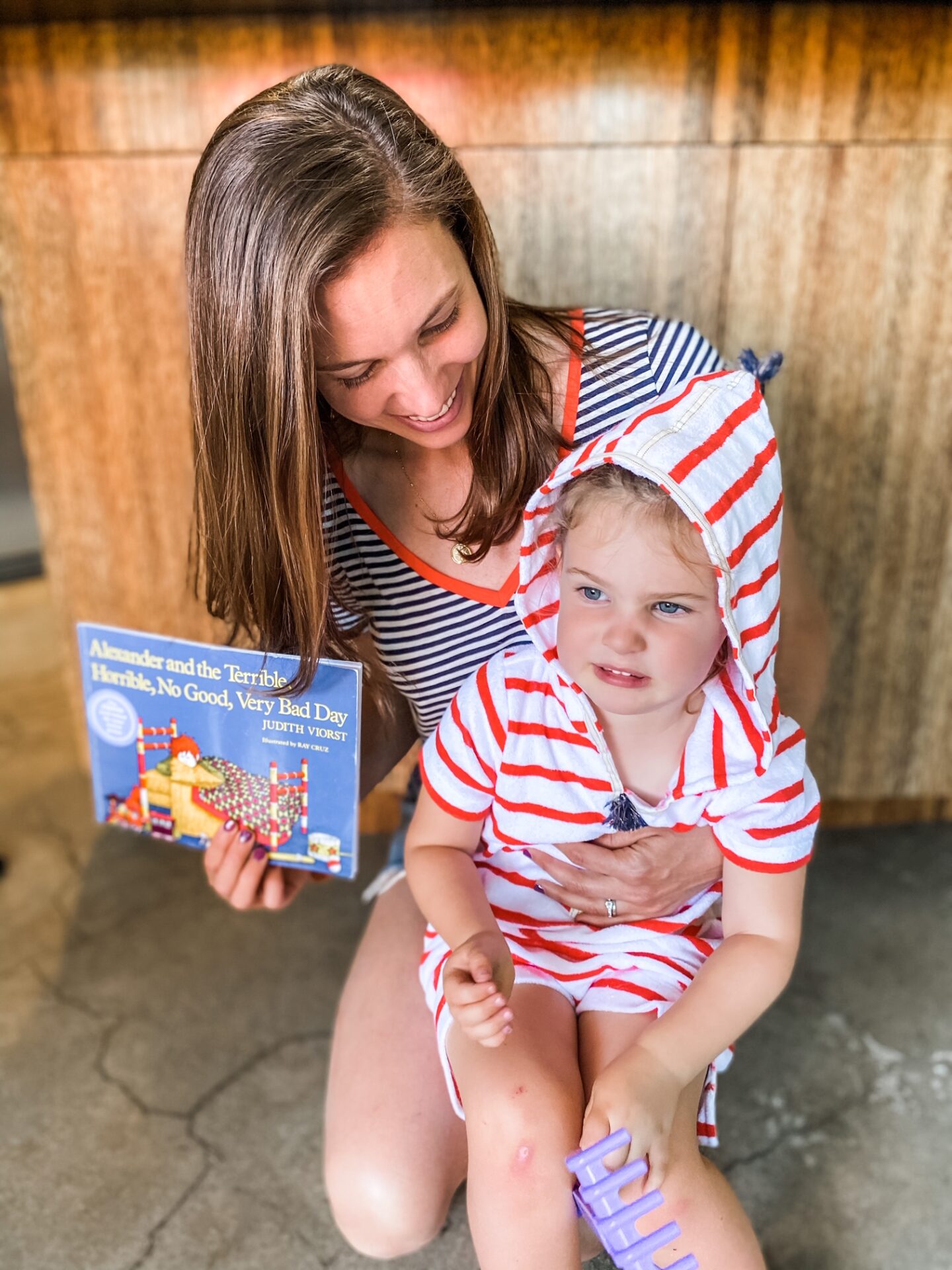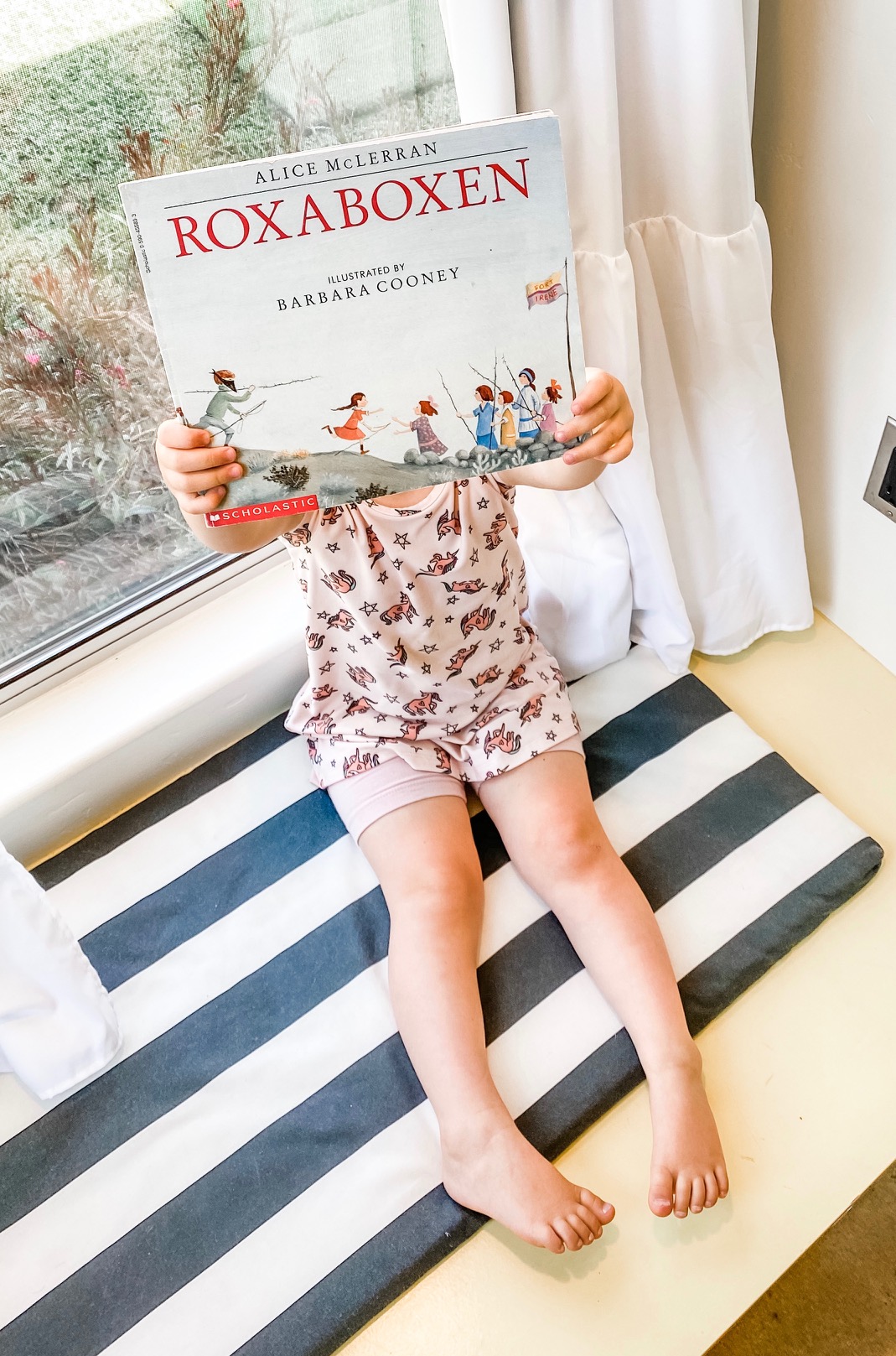Margot: 3 Years
Alexander and the Terrible, Horrible, No Good, Very Bad Day.
Many of my days, especially this past year, have started with me spilling coffee on myself in the car, or breaking the photocopier 5 minutes before class starts, or forgetting to put underwear on my daughter. Oftentimes, these events are just the first domino in a day-long chain of fumbling and flailing that usually ends with me falling face-first onto my couch at the end of the night. On these days, I like Alexander, the protagonist of this week’s book, will lay in bed, roll my eyes, and tell myself: what a Terrible, Horrible, No Good, Very Bad Day.
If you haven’t read it, Alexander and the Terrible, Horrible, No Good, Very Bad Day by Judith Viorst is about a kid who also spends his day being personally victimized by one misfortune after another. Throughout it all, he just can’t seem to understand why all of these terrible things keep happening to him, and no one else. When I was a kid, I was 100% “Team Alex.” I harbored heart-felt sympathy for him, and believed that the injustices he faced were both real, and relatable.
But the part of this book that I didn’t necessarily pick up on as a kid is how Alexander is certain that these terrible things are happening to him, when, in actuality, they are happening because of him.

For example, at one point in the story, Alexander gets mad because “Mrs. Dickens liked Paul’s picture of the sailboat better than my picture of the invisible castle.”
An invisible castle? Really Alexander?
And while this is meant to be funny, and it is funny, reading this page, during this past week made me cringe a little.
It made me cringe because I know that when I spill coffee on myself in the car, its usually because I was too lazy to clean my travel mug and, instead, filled my “Home of the Monster Trout” mug to the brim, and tried to balance it on the edge of a cup-holder it didn’t fit into. And when I break the copier, it’s usually because, despite having read approximately ten thousand books, I will forever refuse to read simple directions. And when I forget to put underwear on Margot, I really just forgot to wash her underwear because I was watching Bravo instead.
So when I think about this past week, and this past year, and my whole life really, and I start to consider the things that have made me angry or frustrated, I have to ask myself whether these things are happening to me, or because of me. When I’m honest with myself, the answer makes me a little uneasy.
Throughout this past week in particular, I have been guilty of pulling an Alexander and making the situation about me. I’ve been trying to pick out the little things I’ve been doing right, as a person, an educator, and a parent, but not really spending the time to feel the feelings attached to my burgeoning recognition of what it means to be complicit in the problem(s) our country is currently facing. This story has reminded me of just how crucial it is to stop and ask myself: am I really on the right path, or am I just drawing an invisible castle, and then getting mad when it doesn’t make waves on the art scene?
What I love most about this book is that, at the end, Alexander complains to his mom about how horrible everything is, and she just responds with “some days are like that.”
She doesn’t cuddle him, or tell him that it will be better tomorrow, or validate any of his experiences from the day. Instead, she just serves him a little reality check and sends him off to bed.
Based on the uncomfortable look on his face on the last page of the story, it is clear that Alexander is having trouble making room for this newfound truth about the world: that some days suck, and sometimes the suckiness is your own fault, and oftentimes you have to go to bed at the end of the night without having made any of it any better.
On Tuesday, I read this book to my daughter, put her down for a nap, and then listened to Tiffany M. Jewell (author of This Book is Anti-Racist) talk about what we can do as parents to break the cycle of racism and injustice and teach ourselves and our kids how to better show up in the world.
One of the things that really stuck with me was when she said that consuming and trying to fix things right away is privileged behavior, and that we need to “check the urgency.”
This hit home with me because in the moment, I was doing exactly that. I think a lot of us, especially teachers and parents and teacher-parents, have this deeply ingrained impulse to fix and control. Kids grow up fast, and we only have so much time, and I oftentimes feel a great urgency to do it all, and teach it all, at once. But I need to remember that before I can fix a problem, I have to take the time to figure out whether I caused it in the first place. Otherwise, no matter what I do, the next day is just going to be as Terrible, Horrible, No Good, Very Bad as the last one.
So I guess my takeaway and my hope is that this week, and forever really, I can do as Alexander’s mom is teaching him to do: I hope that I can sit in my bed at the end of the day without a lot of answers and let myself feel uncomfortable. I hope that I can use this discomfort to help me figure out where I went wrong, and how to do better. And I hope that I can push aside the impulse to say “tomorrow be better,” when there is really no certainty that it will.
At the end of this book, readers don’t get to find out whether Alexander gets woken up to his ignorance or not. Does he eventually realize that he got the cavity because he didn’t brush his teeth? Or that his dad is annoyed with him because he’s just super annoying? My best guess is that if his week was anywhere near as Terrible, Horrible, No Good, Very Bad as ours was, he probably did.
Max: 14 Months
Max is reading nothing this week, as he is getting two molars and is having his own Terrible, Horrible, No Good, Very Bad, Mom and Dad Don’t Sleep Week.
Click to buy:



